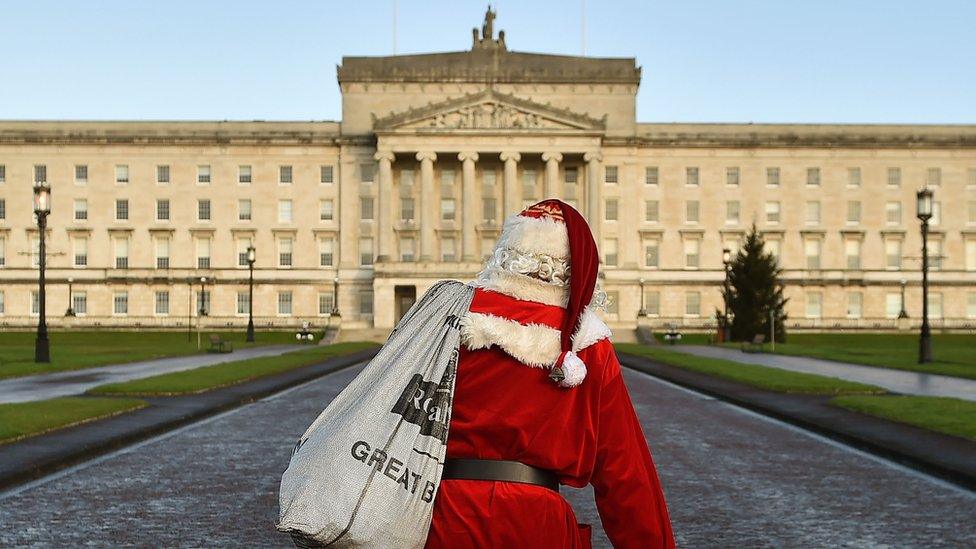Christmas silent nights welcome after bruising NI political talks
- Published
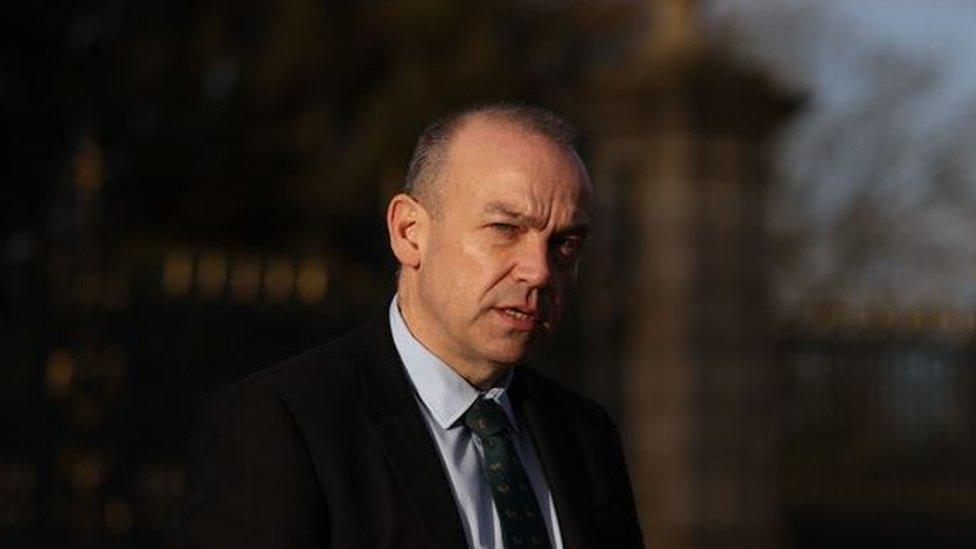
Northern Ireland Secretary Chris Heaton-Harris took a public stand against the DUP
So much for the season of goodwill.
A week that started with a messy political break up at Hillsborough, ended with ugly mud-slinging between London and Dublin.
Both sides are digging in for what could be a dirty court battle over the government's controversial legacy act.
At the same time, relations between the Democratic Unionist Party (DUP) and Northern Ireland Secretary Chris Heaton-Harris were left battered and bruised after he apparently blindsided the party at Hillsborough.
Christmas can be a testing time for relationships but we didn't expect this.
Where do the Northern Ireland political talks stand?
Tempers will no doubt cool over the festive break and we can expect another post-Christmas push to restore power sharing.
The Windsor Framework negotiations may be over but the government's door remains open to the DUP for "clarifications".
That is code for allowing the engagement to continue whatever way it is presented.
It was mission accomplished for Chris Heaton-Harris, who took a public stand against the DUP to please the other parties while keeping the door ajar for Sir Jeffrey Donaldson.
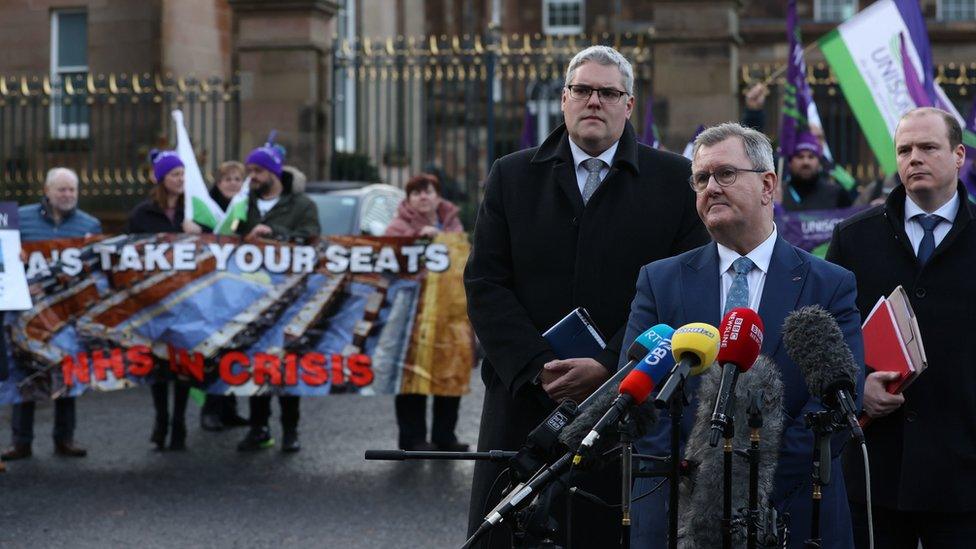
Demonstrations took place place outside Hillsborough Castle while political parties conducted talks inside
It provides limited political cover for the DUP leader though and he will be under pressure to move quickly in the new year.
He has already admitted decision time is approaching for his party.
Will the DUP do a deal?
By all accounts the deal is almost done, it just needs to be signed off, presented fully and sold to the DUP members.
That task has been made easier now the negotiations on a financial package have been parked.
There's no more confusion around two processes running side-by-side - one on the Windsor Framework, the other on finances - which made it easier for opponents to accuse the DUP of a sell out.
Sir Jeffrey will now have a clear run to sell any deal, away from the media spotlight over Christmas and into the new year.
He already has the support of the majority of DUP officers, but the others are beyond his reach.
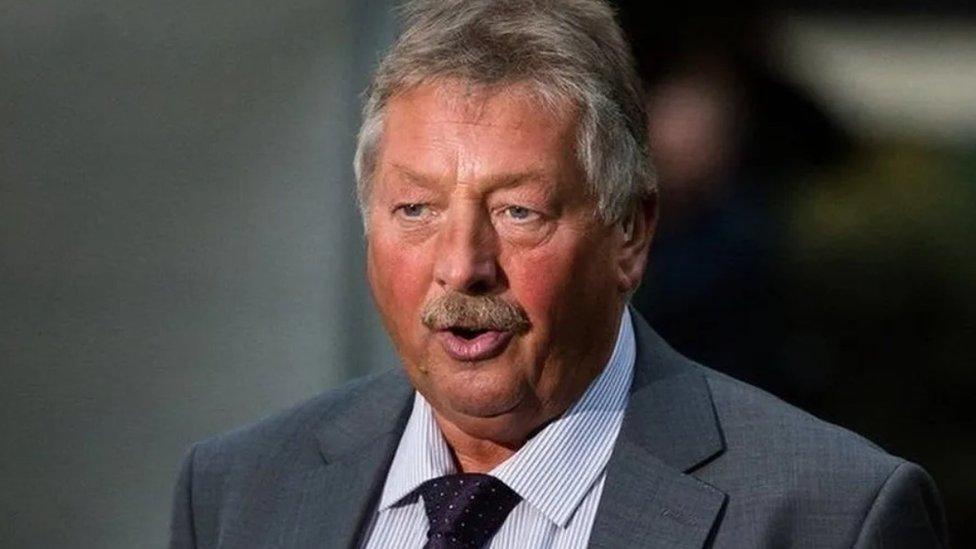
The DUP's Sammy Wilson dismissed the government offer of a £3.3bn financial package as a "bribe".
Quoted in the News Letter, DUP MP Sammy Wilson has said "what is offered will not resolve the issues" and added "the border in the Irish Sea has to go".
While he acknowledged others in the DUP will have a different "emphasis", he said the party has agreed the government has to do more.
Mr Wilson also dismissed the government's offer of a £3.3bn financial package as a "bribe".
With the government insisting publicly and privately the negotiations are over, there is little room for Sir Jeffrey Donaldson to manoeuvre.
He may soon have to calculate how much of a split in his officer team he is prepared to live with and then hope those who don't support the deal, keep their counsel in the public debate to follow.
But there are some in the party who are keen to stretch the process further in the hope of an early election and a change in government.
They believe Labour will strike new agreements with the EU, which will effectively remove the Irish Sea border.
That view is not shared by the DUP leadership, who don't see any quick solutions under Sir Keir Starmer.
There is instead a confidence that the deal, when agreed, will meet all of the DUP's seven tests.
This will be achieved through a mix of amended legislation, easements on checks and paperwork and utilising some of what was already set out in the Windsor Framework, like the Stormont Brake.
There is flexibility in how the seven tests can be interpreted, which makes it easier to mould any deal around them.
That said, the party is braced for a battle on the continued application of EU laws in Northern Ireland.
That has been a red line for many unionists.
But the DUP leadership know that is the price to be paid for access to the EU single market, which is key for many local businesses.
That might explain why nowhere in the seven tests does the party demand the removal of EU laws in Northern Ireland.
Instead it talks about giving the "people of Northern Ireland a say in making the laws which govern them".
This can be achieved through the joint committee, which oversees the implementation of the Windsor Framework, and the various consultative bodies which feed into it.
Also the Stormont brake could be applied on some new EU laws unionists don't like, though London ultimately applies the stop button.
The arguments are being prepared but, as yet, there is no sign the ground is being prepared within the DUP for a move.
When that moment comes, it will be a real relationship tester.
Related topics
- Published20 December 2023
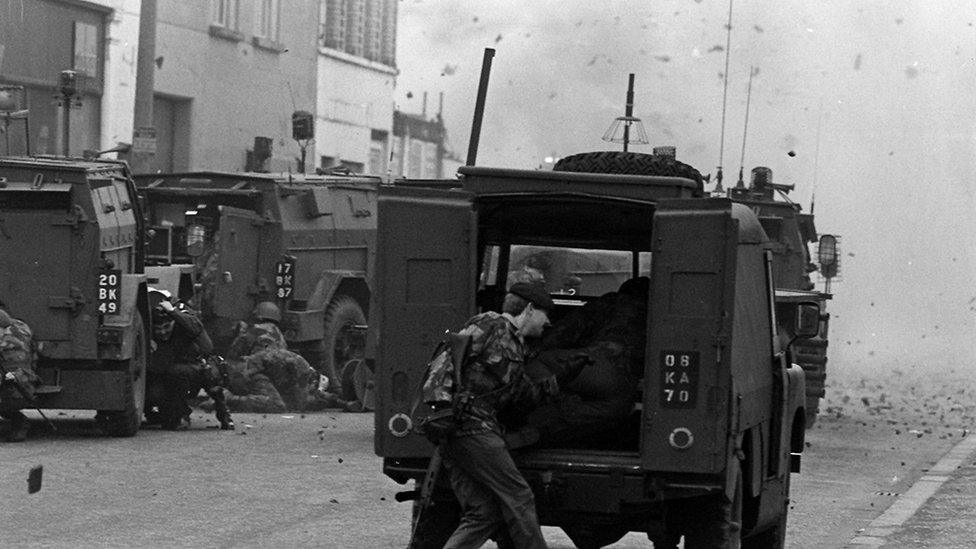
- Published18 December 2023
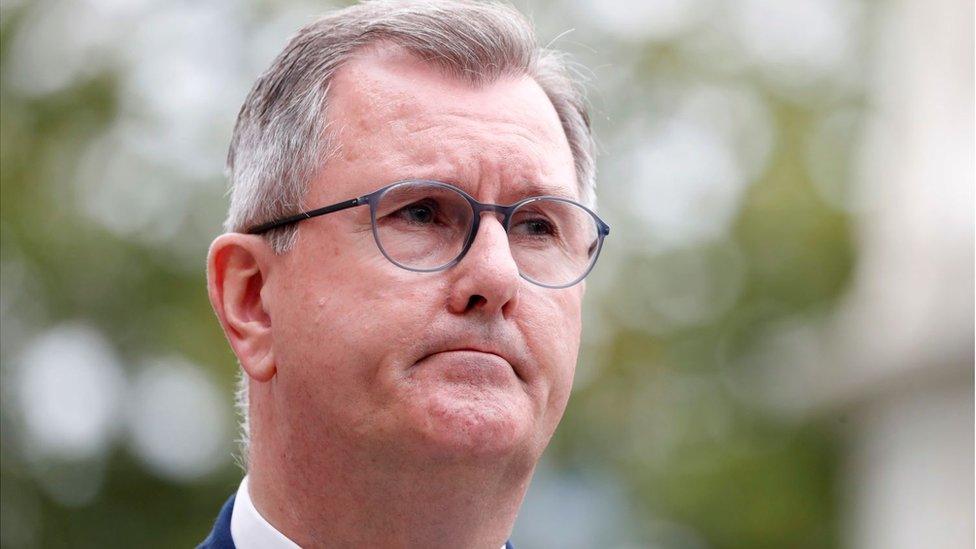
- Published18 December 2023
- Published16 December 2023
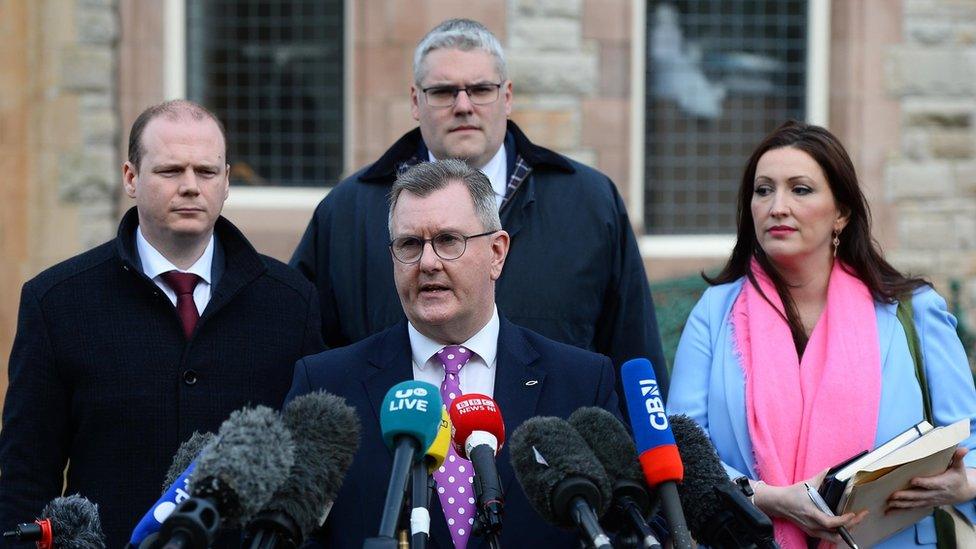
- Published12 December 2023
